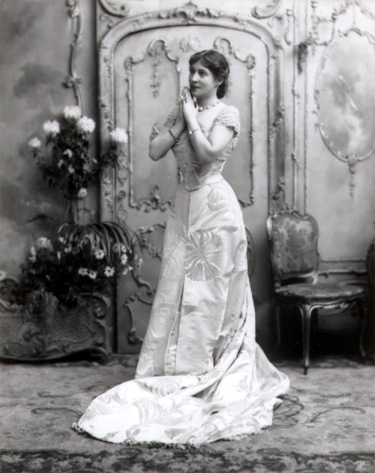The following two stories remind us not only why it is important to keep all chemicals properly labelled in your shop, but also to have your props crew meticulously check their presets before the show.
From The New York Times, July 6, 1902:
The reminiscences of J. H. Stoddart recall an experience which came near being his undoing. It was during the run of “A Celebrated Case,” in 1878, in which Mr. Stoddart played the role of the Sergeant.
“I have reason to remember his character,” writes the actor. “In the prologue I had a scene with Mrs. Booth, who played wife of Jean Renaud, the hero, in the course of which she was supposed to give me, as the Sergeant, a cup of wine, which I had to swallow. It so happened that the property man had been using kerosene on the stage during the day, and had left the bottle containing that liquid upon the dresser, where Mrs. Booth was in the habit of finding the drink for the Sergeant. During the business she poured a full cup from this bottle, handed it to me, and I swallowed the contents at a gulp.
“‘Oh, Lord!’ I said, as I received the potion.
“‘What have I done?’ asked Mrs. Booth under her breath.
“I could only gasp out ‘Kerosene!’ and made a hasty exit. For almost a week every one who came within range of my breath sniffed and inquired if I detected the odor of coal oil.”
From The New York Times, February 14, 1922:
Miss Christine Norman appeared in her part in “The Nest” at the Forty-eighth Street Theatre at the holiday matinee yesterday afternoon and, presumably, will continue to appear for the duration of the play, but for some time last Saturday night and Sunday it was doubtful when, if ever, she would come back to the stage. She had looked upon property wine when it was not property wine and found that not even stage beverages are always harmless these days.
In the first act of “The Nest” Miss Norman drinks two glasses of supposed champagne. Usually she tosses them off with every evidence of relish, one almost immediately after the other. But at last Saturday evening’s performance the first glass almost choked her. It burned and she gasped, hardly able to continue her role. When she was offered the second glass, according to the text of the play, she hurriedly improvised the line “No, thank you, no more!” and the audience did not know why she was so emphatic. They merely thought that she did not want another drink, and she didn’t, for the “champagne” she had drunk was furniture polish. An assistant property man had made a mistake and put the wrong bottle where the maid, who brought it on the stage, usually found a bottle containing a harmless liquid that looked like champagne.
Although Miss Norman was made ill by the furniture polish, she fought through the performance without betraying her condition to the audience. When she reached her home Saturday night she sent for Dr. Elliott C. Burrows of 1 West Sixty-ninth Street, who found her suffering acutely and said that only the oil in the polish, which counteracted the effect of the other chemicals, had prevented a critical and perhaps fatal illness. As it was, Miss Norman spent some bad hours, and was still shaky yesterday afternoon.

